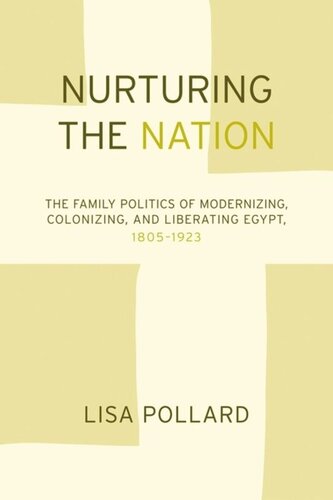

Most ebook files are in PDF format, so you can easily read them using various software such as Foxit Reader or directly on the Google Chrome browser.
Some ebook files are released by publishers in other formats such as .awz, .mobi, .epub, .fb2, etc. You may need to install specific software to read these formats on mobile/PC, such as Calibre.
Please read the tutorial at this link: https://ebookbell.com/faq
We offer FREE conversion to the popular formats you request; however, this may take some time. Therefore, right after payment, please email us, and we will try to provide the service as quickly as possible.
For some exceptional file formats or broken links (if any), please refrain from opening any disputes. Instead, email us first, and we will try to assist within a maximum of 6 hours.
EbookBell Team

4.7
96 reviewsFocusing on gender and the family, this erudite and innovative history reconsiders the origins of Egyptian nationalism and the revolution of 1919 by linking social changes in class and household structure to the politics of engagement with British colonial rule. Lisa Pollard deftly argues that the Egyptian state's modernizing projects in the nineteenth century reinforced ideals of monogamy and bourgeois domesticity among Egypt's elite classes and connected those ideals with political and economic success. At the same time, the British used domestic and personal practices such as polygamy, the harem, and the veiling of women to claim that the ruling classes had become corrupt and therefore to legitimize an open-ended tenure for themselves in Egypt. To rid themselves of British rule, bourgeois Egyptian nationalists constructed a familial-political culture that trained new generations of nationalists and used them to demonstrate to the British that it was time for the occupation to end. That culture was put to use in the 1919 Egyptian revolution, in which the reformed, bourgeois family was exhibited as the standard for "modern" Egypt.